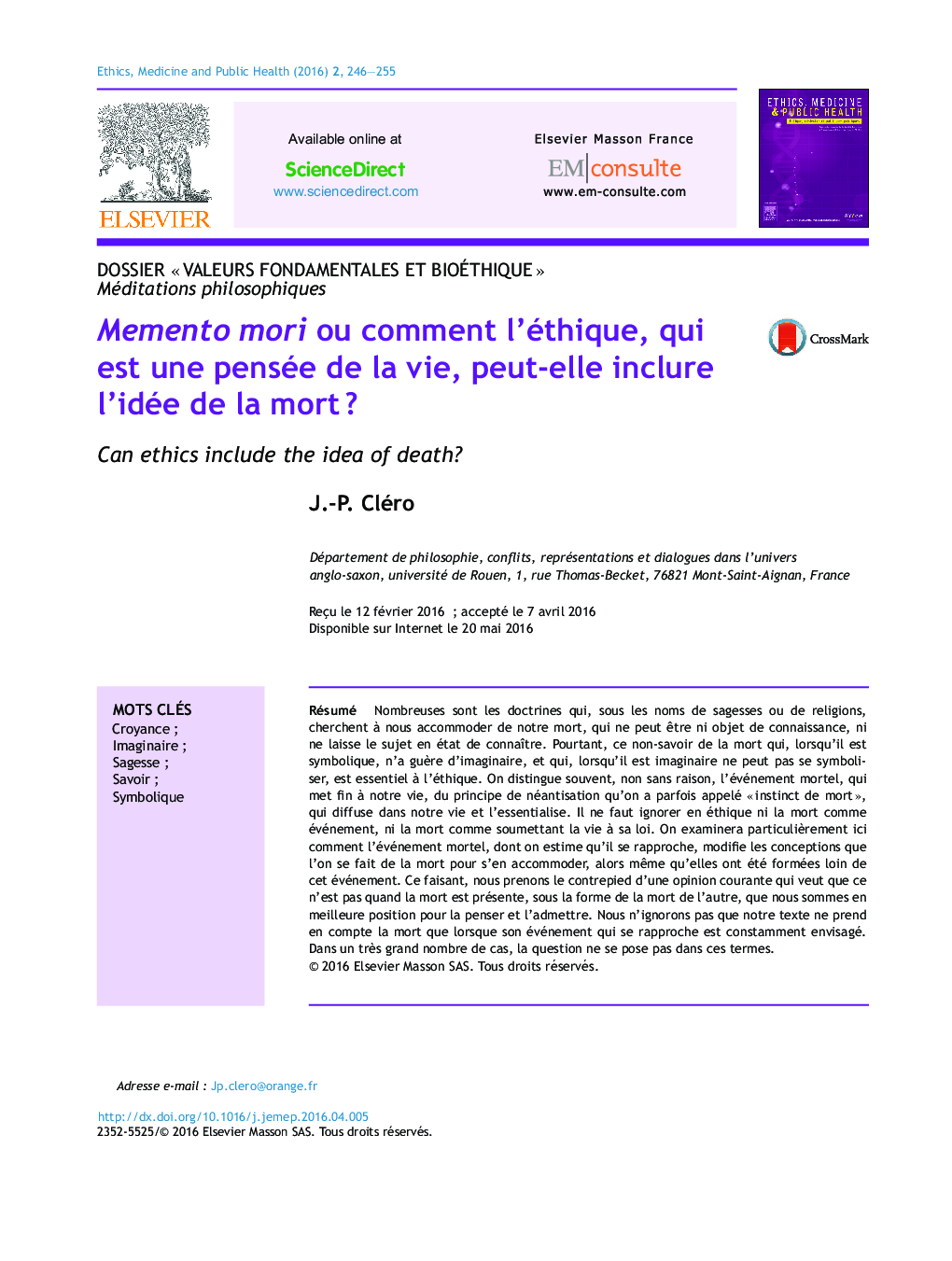| کد مقاله | کد نشریه | سال انتشار | مقاله انگلیسی | نسخه تمام متن |
|---|---|---|---|---|
| 1097642 | 1487638 | 2016 | 10 صفحه PDF | دانلود رایگان |

RésuméNombreuses sont les doctrines qui, sous les noms de sagesses ou de religions, cherchent à nous accommoder de notre mort, qui ne peut être ni objet de connaissance, ni ne laisse le sujet en état de connaître. Pourtant, ce non-savoir de la mort qui, lorsqu’il est symbolique, n’a guère d’imaginaire, et qui, lorsqu’il est imaginaire ne peut pas se symboliser, est essentiel à l’éthique. On distingue souvent, non sans raison, l’événement mortel, qui met fin à notre vie, du principe de néantisation qu’on a parfois appelé « instinct de mort », qui diffuse dans notre vie et l’essentialise. Il ne faut ignorer en éthique ni la mort comme événement, ni la mort comme soumettant la vie à sa loi. On examinera particulièrement ici comment l’événement mortel, dont on estime qu’il se rapproche, modifie les conceptions que l’on se fait de la mort pour s’en accommoder, alors même qu’elles ont été formées loin de cet événement. Ce faisant, nous prenons le contrepied d’une opinion courante qui veut que ce n’est pas quand la mort est présente, sous la forme de la mort de l’autre, que nous sommes en meilleure position pour la penser et l’admettre. Nous n’ignorons pas que notre texte ne prend en compte la mort que lorsque son événement qui se rapproche est constamment envisagé. Dans un très grand nombre de cas, la question ne se pose pas dans ces termes.
SummaryMultifarious are the doctrines that, under the name of wisdoms or of religions, tempt to make us come to a sort of agreement with death. Death can be neither an object for knowledge nor can let the subject in the fit state to know it. However, this “non-knowledge”, that has no imaginary when it is symbolic and that is not symbolic when one tries to imagine it, is essential to ethics. Some thinkers have distinguished, not without reason, the mortal event as the end of the life, from the principle of nothingness, that is sometimes called instinct of death, and that diffuses through the whole life, “essentializing” it. In ethics, one must ignore neither the death as event nor the death as submitting life to its law. The question particularly scrutinized here is: how the mortal event from which we judge it is approaching modifies and alters the conceptions we frame of the death in order to accept it, while they were conceived far from that event? So doing, we make the exact opposite of a common idea: according to that idea, it is not when the event of death is present that we are better disposed to think death. We do not ignore that the following article takes the death into account only when its approaching event is consciously apprehended. In a greater number of cases – perhaps in most cases – it cannot be grasped in such a way.
Journal: Ethics, Medicine and Public Health - Volume 2, Issue 2, April–June 2016, Pages 246–255